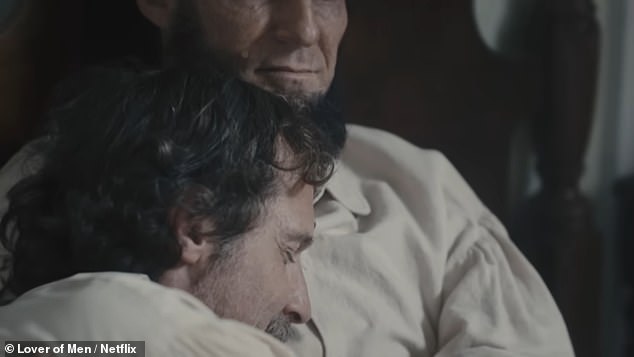Abraham Lincoln’s sex life, including theories that he had homosexual relationships with men, will be explored in a new documentary.
The legendary 16th president’s sexuality has been around in academia for decades, much of it based on letters he wrote to close male friends.
Opinions range from him being a closeted homosexual to him simply experimenting with his sexuality despite being primarily heterosexual.
Lover of Men, which will be released in select theaters on Sept. 6, “examines the intimate life of America’s most important president,” its website says.
Abraham Lincoln’s sex life, including theories that he had homosexual relationships with men, will be explored in a new documentary
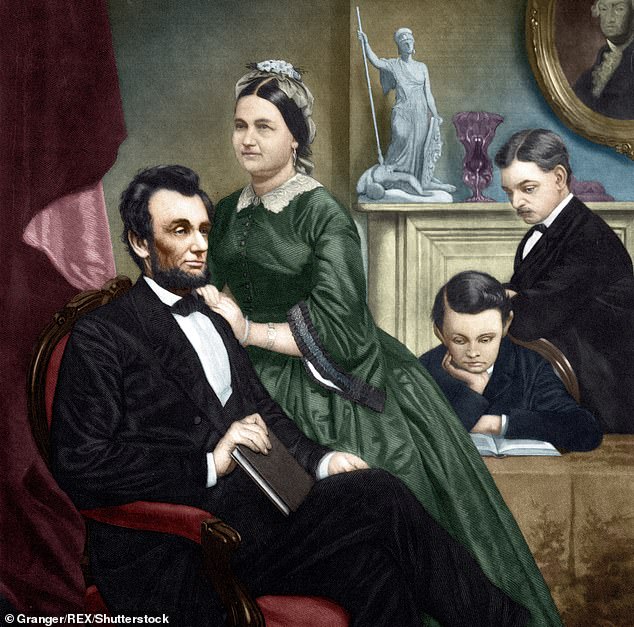
Lincoln was married to Mary Todd and had four children.
A trailer released this week features clips from his interviews with more than a dozen Lincoln scholars and historians discussing the evidence.
Actors were also shown acting out intimate scenes between Lincoln and male figures in his life, including holding hands and cuddling in bed.
A central piece of evidence for Lincoln’s queer identity are the letters he wrote to supposed male lovers and others to people who gossiped about him.
“Dear Speed, I’ll be so lonely without you, love Lincoln,” concludes one trailer, referring to Joshua Fry Speed.
Speed was Lincoln’s most cited potential gay partner, as the two had a close friendship that lasted from their youth until Lincoln’s assassination.
Another man, also mentioned in the trailer, was Army captain and Lincoln’s bodyguard, David Derickson, who was the subject of gossip.

Actors were also shown acting out intimate scenes between Lincoln and male figures in his life, including holding hands and cuddling in bed.
Elizabeth Woodbury Fox, the wife of Lincoln’s naval aide, wrote in her diary on November 16, 1862, about a rumor she heard about them.
“Tish says, ‘Oh, here’s a Bucktail soldier who is loyal to the President, travels with him, and when Mrs. L isn’t home, sleeps with him.’ What nonsense!” she wrote.
However, most historians believe that this entry was misinterpreted, as “what stuff!” at the time was used to mean that the gossip was absurd (in line with the phrase “stuff and nonsense”), rather than credibly scandalous.
The trailer also explains how sexuality in the 19th century was much more fluid than today, which is both a pro and con of Lincoln being gay.
‘Lover Of Men widens its lens on the history of human sexual fluidity, focusing on the profound differences between 19th-century sexual mores and those we hold today,’ reads the synopsis.
‘The film fills in an important part of American history and challenges audiences to consider why we have such a limited view of human sexuality.’

Joshua Fry Speed was Lincoln’s most cited potential gay partner, as the two had a close friendship that lasted from their youth until Lincoln’s assassination.
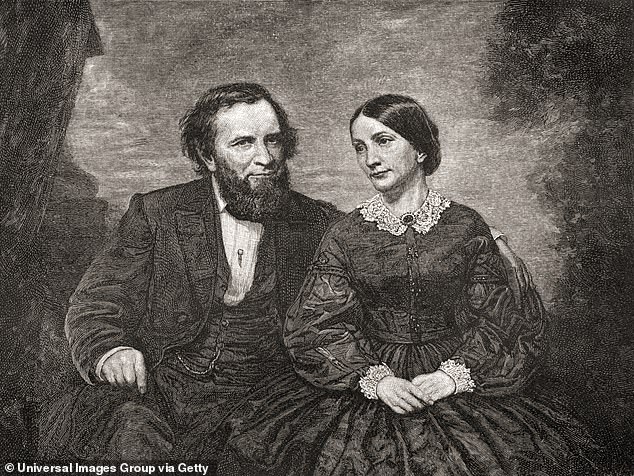
Speed with his wife Lucy Gilmer Fry in 1887
Other aspects of the debate over Lincoln’s sexuality point to the fact that he slept in beds with at least 11 other men and boys in his youth and adulthood.
This was common at the time, especially when traveling, as bedroom space was at a premium and lacked the sexual connotations of today.
Lincoln began sleeping with Speed when he moved to Springfield, Illinois, in 1837 and could not afford his own bed and bedding.
However, they continued to sleep together for four years while he was a successful lawyer and member of the Illinois House of Representatives.
Historians noted that Speed and Lincoln never denied sharing a bed, and Speed’s offer to the bankrupt Lincoln was considered casual and uncontroversial.
Furthermore, none of Lincoln’s many political enemies ever attempted to smear him as a homosexual.
Speed and Lincoln had opposing views on slavery, but remained close throughout their lives and even appointed Speed’s brother, James, as his attorney general.
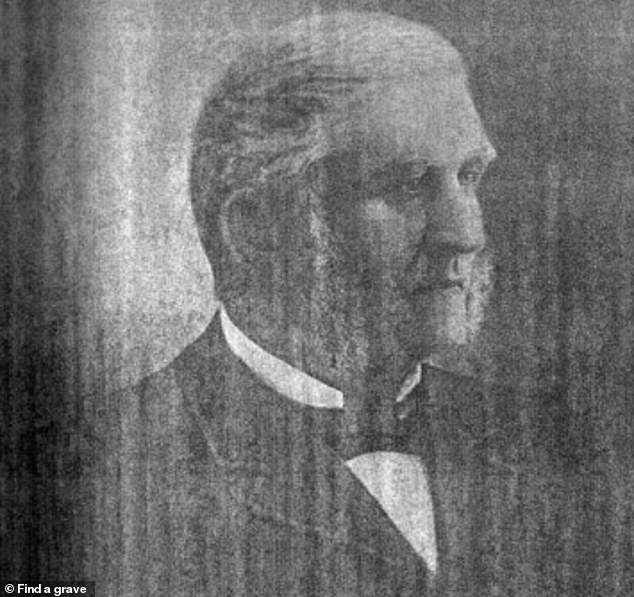
Another man, also mentioned in the trailer, was Army captain and Lincoln’s bodyguard, David Derickson, who was the subject of gossip.

Derickson portrayed by an actor in the documentary
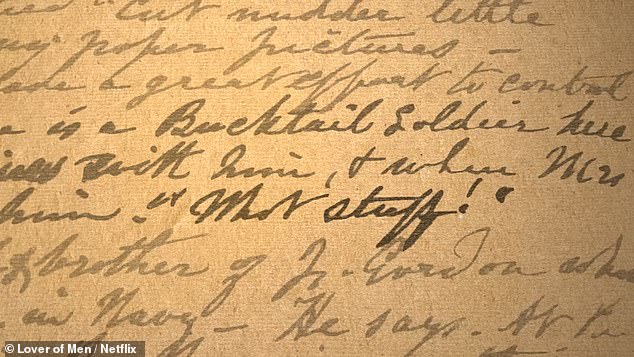
Elizabeth Woodbury Fox, the wife of Lincoln’s naval aide, wrote in her diary on November 16, 1862, about a rumor she heard about them.
Lincoln also often slept in the same bed as other lawyers, as was common on the traveling “circuits” of the time, where up to 20 people could sleep in the same room.
These types of sleeping arrangements were also not considered sexual because since other people shared other beds in the room, they were never alone.
“His intimacy is rather an index of an era in which close male friendships, accompanied by open expressions of affection and passion, were familiar and socially acceptable,” Doris Kearns Goodwin argued against a queer Lincoln in her biography.
“Bed-sharing cannot be considered proof of an erotic relationship either. It was common practice at a time when private chambers were a rare luxury…
‘Attorneys in the Eighth Illinois Circuit, where Lincoln traveled regularly, shared beds.’
However, Jonathan Katz wrote in his book on Lincoln’s sexuality that bed-sharing “offered an important site (probably the primary site) of erotic opportunity” if they could avoid being noticed by anyone nearby.
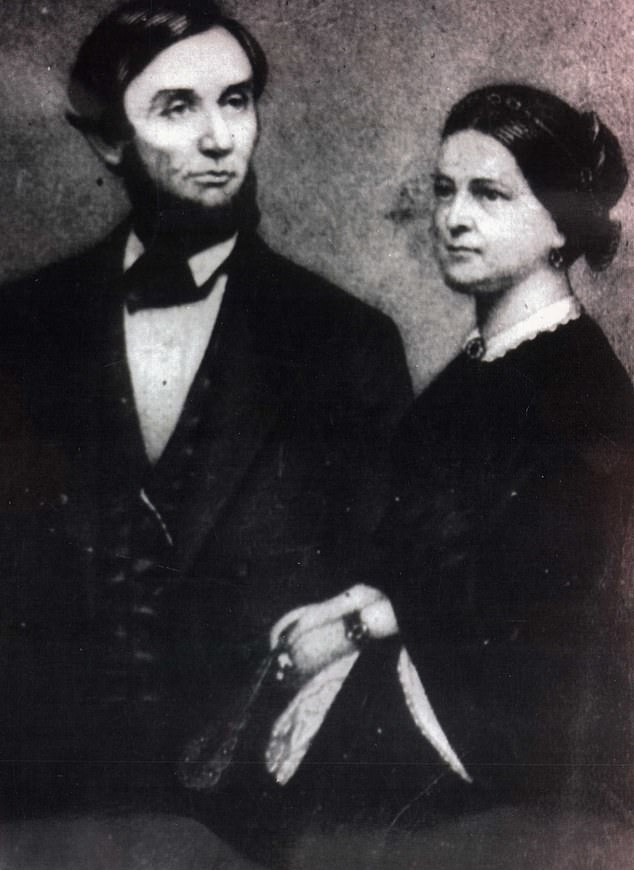
Historians wrote that Lincoln and Todd’s relationship was “bound by three strong ties: sex, parenthood, and politics” and they had an active sex life.
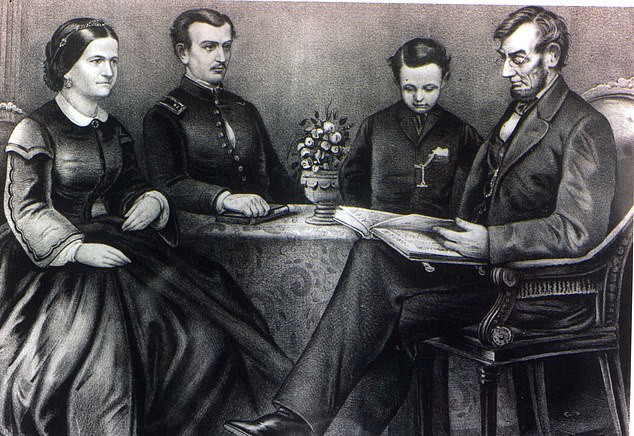
They had four sons, Robert in 1843, Eddie in 1846, Willie in 1850, and Tad in 1853.
Katz wrote that, unlike the better-defined sexualities of today, people in centuries past “continually reconfigure their affectionate and erotic feelings and acts.”
In contrast, Lincoln was known for his relationships with women, first with Ann Rutledge, whose death in 1835 “plunged him into a severe depression.”
After rejecting his fiancée Mary Owens because “he knew she was too great, but now she seemed a good match for Falstaff”, he married Mary Todd.
Lincoln had also previously called off his engagement to Todd in 1941 during a deep depression that coincided with major political setbacks, Speed’s move away from Springfield, and a split from his law partner.
They later reconciled and had four sons: Robert in 1843, Eddie in 1846, Willie in 1850, and Tad in 1853.
Historians wrote that their relationship was “bound by three strong ties: sex, parenthood and politics” and they had an active sex life.
Todd’s biographer Jean Baker wrote that “most observers of Lincoln’s marriage were impressed with his sexuality.”

A trailer released this week features clips from his interviews with more than a dozen Lincoln scholars and historians discussing the evidence.
Lover of Men also sought to comment on modern American views on sexuality and how they differed from Lincoln’s time, as an “examination of American intolerance.”
He argued that attitudes changed in the late 19th century and the work of the famous psychologist Sigmund Freud imposed more rigid sexual categories.
This environment led to homosexuality being considered a mental disorder and punishable by law.
“If Lincoln were to look down today, he would see America in a particularly fragile moment,” one pundit said in the trailer.
‘Lincoln’s legacy is an insistence on equality… if you can accept a queer Lincoln, you can accept queer people in general.’
(tags to translate)dailymail


